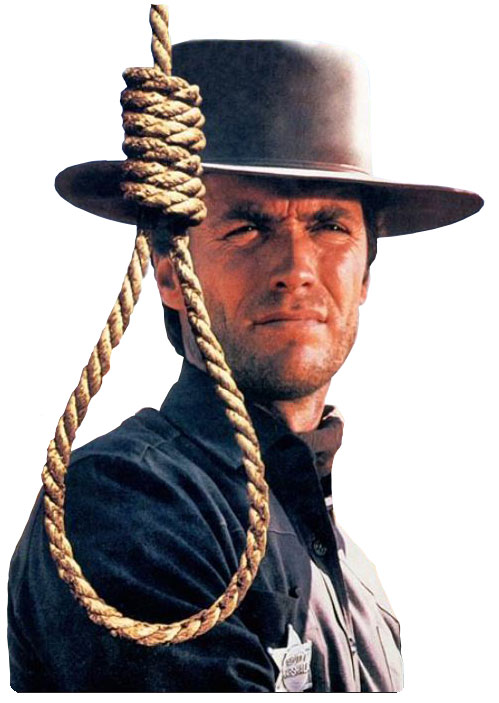Categorical
Imperative The average MOTS (Man on the Street) philosopher may not easily relate to the ‘Kantian’ words ‘hypothetical’, ‘categorical’ and much less ‘imperative’. First, some help on those ‘K-words’: "Hypothetical" "Categorical" "Imperative" "Hypothetical imperative" In his theory of morality Kant's 'The
Categorical Imperative' consists of principal 'formulations' where the sovereignty of the individual is considered
rational. Kant’s foundational formulation reads: Kant expressed extreme dissatisfaction with the popular moral philosophy of his day. A utilitarian says that murder is wrong because it does not maximize good for those involved, but to Kant this appears questionable, for there are people whose only concern is to maximize a positive outcome for themselves. For Kant, hypothetical moral systems rely too heavily on subjective considerations, thus his motivation creating the categorical imperative. Case Examples
#1: An ocean liner has sunk. The lifeboat is capable of supporting 5 people, but 6 passengers have survived the sinking of the vessel. Moral question: ‘whom shall be pitched overboard?’ There’s the ‘Mother Teressa’ who offers to jump in – but it’s not a good idea to pitch saints over. Another passenger is a luckless felon who is going to be executed in 48 hours. And there’s a little infant who wouldn’t know any better. Once you engage in moral deliberations of this sort, you’re already developing some kind of calculus of utility to figure out what you should do based on what there is to gain or loss in the process. #2: Authorities have apprehended a suspected murderous rapist. Right-thinking, decent, public-spirited citizens are convinced that they have captured the real rapist. Turns out that the authorities have acquired evidence that proves the suspect didn’t do the crime. The crowd (mob) doesn’t believe it – they hang outside the prison and declare, ‘you either hang’em or we blow up the town’. So, you’re thinking, ‘well I can kill this innocent guy and save the town with 600 lives’, but you’re doing the calculus of utility again.
Case #3: The joke about inquiring a lady to pay her to have sex. She agrees to a large sum of money, but when you offer her a petty sum, she replies that she is not a prostitute – ‘what do you think I am?’ The joke reply is ‘well, we’ve already established what you are, now were just haggling about the price’. Quite so with the utilitarian calculus.
The Categorical Imperative specifically denies us the right to do that, because if you are prepared to do wrong, just so long as the consequences are acceptable, then indeed you’re prepared to do wrong. You cannot justify doing wrong by pointing to some other set of outcomes that in some sense or other might prove to be desirable or might prove to be morally worthy. You can’t cover up a wrongdoing by pointing to consequences, intended consequences that were just right. When one intentionally uses another as an instrument of their purpose then they are rejecting that person as a morally autonomous being - that one is prepared to suspend what is necessary for there to be morality at all. You could reply, ‘well, I only do it every so often or only do it under certain circumstances.’ Professor Daniel N. Robinson, Georgetown College philosophy professor, points out, “Forget about it. It means that your position on morality is a contingent position – “I will invoke moral precepts when they are serviceable, but if it just turns out that a week from now, it’s a good idea to take significant numbers of persons and use them as if they were mere tools or instruments for my purpose, then I’ll do it.” "The institution of slavery cannot be endorsed on any version of the Categorical Imperative. To take a rational, autonomous being and treat that entity as nothing but a tool or instrument, as in Dred Scott, to do that, you can’t even claim the right to do it, because to claim the right to do it is to evoke a moral precept. And in denying a moral autonomy, in denying the moral standing of this subject of this the institution of slavery, you’ve lost the very moral resources to claim a right – it just can’t work. We are not to use others as tools or instruments – “Man is an end unto himself”. "When Abraham Lincoln argued more than once that if slavery isn’t wrong nothing can be wrong, he was essentially taking a page out of the Kantian moral theory." "So, the Kantian upshot is 'never lie'. Not even a white lie? Is there no elasticity in the system at all? Let’s look at the really serious white lies – fraud, manipulation. Look at what’s going on there: if Smith lies to Jones, to have Jones do something that Jones properly informed would never do, then Smith is using Jones as a tool or instrument of Smith’s purpose. That is, he is trumping your moral autonomy by filling your head with wrong information, so that you will do something, which in your rationally reflective moments, you would not do. It’s a violation of the Categorical Imperative." Case #4: The S.S. is at your door
and the stormtroopers bust in. What Kant alerts us to is this: you can never justify something morally simply on the grounds that it makes you feel better. In this we will find morality in the hands of the mad man, the criminal, the lunatic, the debauch. It will never be sufficient to say that the reason I did this, is because it made me happy and it’s making me happy is the beginning, middle and end of the moral status of the act itself – that obviously won’t work. In the end, Kant is trying to save us from vulgar forms of consequertianlism. The Categorical Imperative specifically denies us the right to practice a ‘calculus of utility’, because if you are prepared to do wrong, just so long as the consequences are acceptable, then indeed you’re prepared to do wrong. Kant insists that there is only one morally good thing in the universe – the good will. In regard to Georg Hegel, Kant’s successor, he wasn’t satisfied with that position. Hegel was more satisfied with the ‘The Absolute’ or 'The Absolute Idea' - the force behind evolutionary and progressive human history - which ultimately takes sanctuary, in its fullest expression, in the ordered State itself. The critical 'Cassandra' warning against the Hegelian Absolute State is this: when you start to substitute the claims of conscious for the requirements imposed on by the State there is no end to trouble. At the end of Voltaire’s ‘Candide’, a humorous story of ‘riches to rags’ and of suffering and deception, the old fruit framer summaries his life journey with the maxim “we must cultivate our garden”. The farmer’s message is that it is wise to keep good distance between ourselves and the world; that taking too close an interest in politics or public opinion is a fast route to aggravation and danger; that we should know well enough that humans are troublesome and will never achieve – at a state level – anything like the degree of logic and goodness we would wish for. An insightful interpretation of 'Candide': Voltaire's attempt to satirically to destroy the perceived false hope of his age - a hope that centered around science, love, technical progress and reason. To Voltaire science wasn’t going to improve the world – it would merely give new power to tyrants; philosophy would not be able to explain away the problem of evil – it would only show up in our vanity; love was an illusion. That humans are irredeemably wicked and the future absurd. Hope was a disease, and it was Voltaire’s generous goal to try to cure us of it. Spiritual Imperative
Case #5: Someone has raped and murdered your 7 year old daughter. Do you obey the Christian ethic, ‘turn the cheek’, and forgive that person? In her first Novus Spiritus service, Seattle, WA, Syliva Browne wisely commented, "If you cannot forgive something, give it to God. There are certain things that are far beyond our power to forgive. So, it is perfectly all right to say, 'God, I cannot forgive that person who killed my precious, innocent daughter, so I have got to give it to You'. That is okay." Objectivism An alternate and modern version of the Categorical Imperative can be seen in Ayn Rand's "Objectivism" where every man is an end in himself, not the means to the ends of others. That he must exist for his own sake, neither sacrificing himself for other nor sacrificing others for himself. The pursuit of his own rational self-interest and of his own happiness is the highest moral purpose of his life.
z
|






